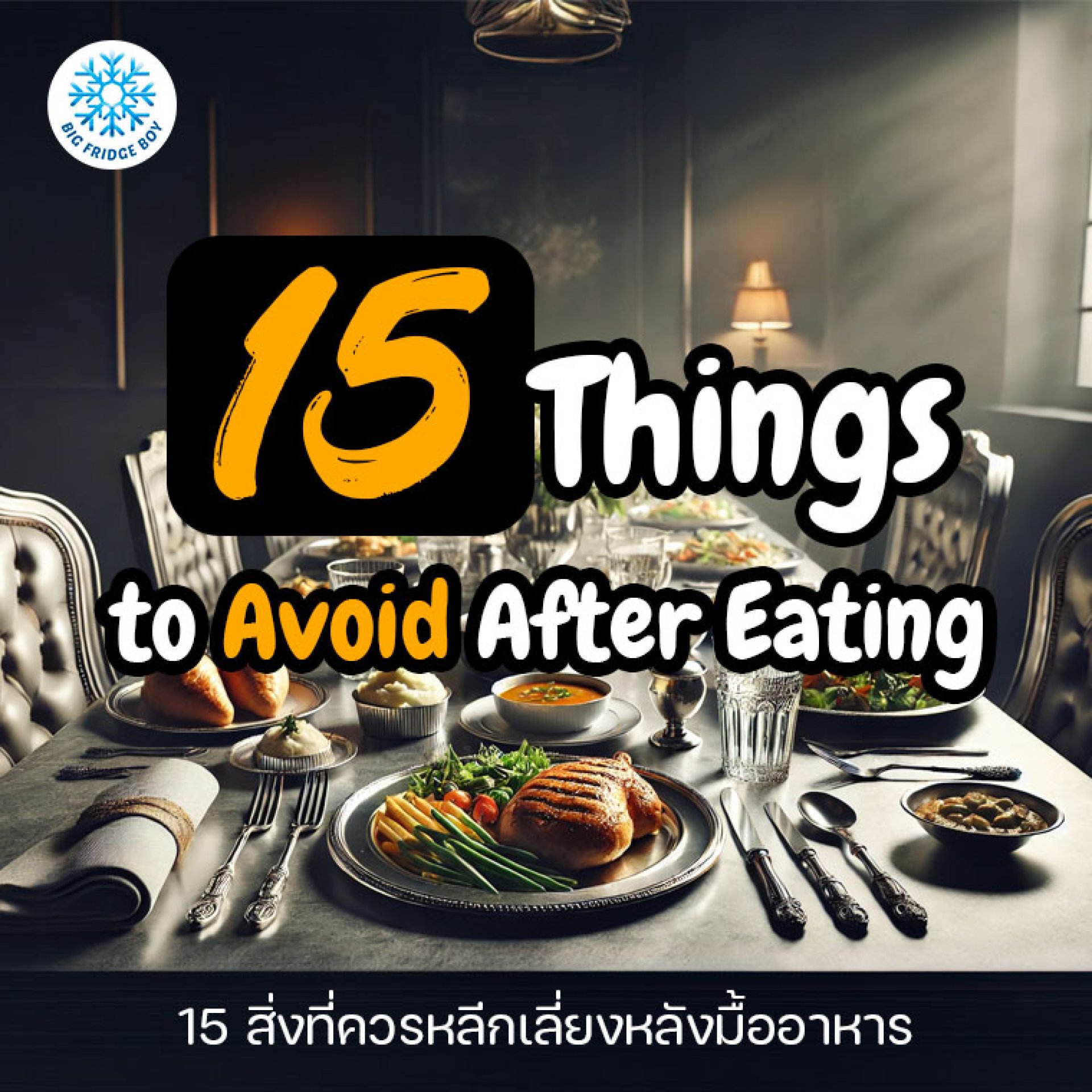"Navigating Post-Meal Habits: 15 Things to Avoid After Eating"

Eating a balanced and nutritious meal is an essential part of maintaining good health. However, our habits and activities following the meal can significantly affect our digestion and overall well-being. Missteps in these post-meal behaviors can lead to discomfort, poor nutrient absorption, and long-term health problems. In the following discussion, we will delve into fifteen activities that should be avoided after eating a meal and the reasons behind these recommendations.
1. Don't Sit for an Extended Period of Time
While you should not engage in strenuous activity immediately after a meal, you should also not sit for too long. This sedentary behavior can slow your metabolism and impact digestion. Instead, engaging in light activities, like casual walking or household chores, can promote healthy digestion.
2. Don't Walk Immediately After Eating
While gentle walking after about half an hour can aid digestion, immediate, strenuous walking right after a meal can result in abdominal discomfort or indigestion. This is because your body needs some time to begin the digestion process.
3. Don't Brush Your Teeth Immediately
Right after a meal, especially one that’s acidic, your teeth are at their most vulnerable. Brushing can rub the acids deeper into enamel, the outer layer of your teeth. Dentists recommend waiting at least 30 minutes after eating before you brush your teeth.
4. Don't Skip Dessert Entirely
This might sound odd as many diet plans might recommend skipping dessert. However, if you enjoy a sweet treat, you might find that completely denying yourself can backfire, leading to cravings and overeating later. The key is portion control - a small piece of dark chocolate or a piece of fruit can satisfy your sweet tooth without overloading on sugar.
5. Avoid Consuming Too Much Salt or Sugar
While a small dessert is fine, loading up on salty or sugary snacks after a meal can lead to health problems such as high blood pressure, heart disease, and diabetes.
6. Don't Eat Fruit Right After a Meal
It's often recommended to eat fruit before a meal rather than after, because fruit requires different enzymes to digest. It's also digested much faster than other food, and if eaten after a meal, it can stay in the stomach for longer, potentially causing gas, bloating or discomfort.
7. Avoid Tight Clothing
Tight clothes can put extra pressure on your stomach, which can push food back up into the esophagus. This can cause heartburn or acid reflux, particularly if you have just eaten a large meal.
8. Don't Drink a Lot of Cold Water
Drinking large amounts of cold water immediately after a meal can slow down digestion and interfere with the natural absorption of nutrients because it solidifies the fats from food, making them harder for the body to breakdown.
9. Don't Drink Tea or Coffee Immediately
These beverages contain substances like tannins and caffeine which can interfere with iron absorption. This is particularly important for those with iron deficiencies or dietary restrictions limiting iron intake.
10. Don't Drink Alcohol Immediately After Eating
Alcohol can inhibit the breakdown of food in the stomach and interfere with the absorption of nutrients in the intestines. Moreover, drinking alcohol after a meal can also increase your blood alcohol concentration levels more than drinking on an empty stomach.
11. Don't Exercise Immediately
Some people believe that exercising right after eating helps with weight loss, but that's not the case. Exercising after eating can lead to indigestion, discomfort, and may affect the absorption of nutrients since your body needs to divert blood to your muscles instead of your digestive system.
12. Avoid Swimming or Intense Physical Activity
Just like with exercise, intense physical activity or swimming can redirect the blood flow from your digestive system to your limbs, slowing down the digestion process. This could lead to cramping or discomfort.
13. Don't Take a Shower Immediately
Taking a shower right after eating diverts blood flow towards the skin to regulate body temperature, rather than helping with digestion.
14. Avoid Stressful or Agitating Activities
Stress can interfere with digestion by causing your body to enter the 'fight or flight' mode where digestion slows down or even stops. So, relaxing activities can promote better digestion.
15. Don't Go to Bed Immediately
Lying down after a meal can increase the risk of developing gastroesophageal reflux disease (GERD), where stomach acid flows back into the esophagus. This happens because gravity can't help keep your stomach contents down where they belong. The consequence can be heartburn and chronic acid reflux.
In conclusion, understanding what to avoid doing after eating is crucial for maintaining a healthy digestive system and ensuring optimal nutrient absorption. It's about striking the right balance between relaxation and light activity and being mindful of habits like immediate brushing, going to bed, or taking a shower. It's equally important to be mindful of what we consume post-meal, such as drinking certain beverages or overindulging in desserts.



